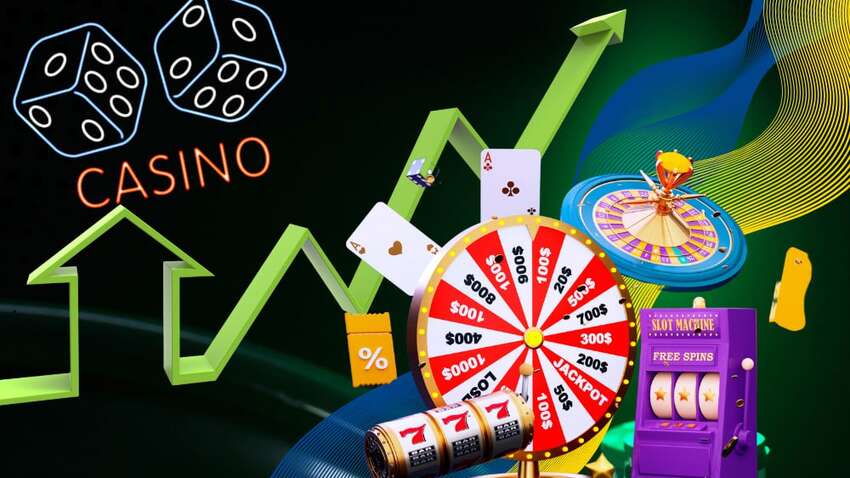
The phenomenon of bhang bet sits at the intersection of ancient cultural practice and modern gaming innovation. To many, the term evokes images of traditional South Asian festivities where bhang — a cannabis-infused preparation — plays a role in ritual and celebration. To others, it signals a contemporary platform or concept that blends these cultural references with wagering, prediction, or competitive mechanics. This article examines bhang bet from multiple angles: historical context, the way contemporary platforms interpret the idea, user experience and mechanics, social and legal considerations, and responsible engagement.
Understanding the cultural roots is essential. Bhang has been consumed for centuries in parts of South Asia, often during religious observances like Holi and Shiva-related festivities. It is typically prepared from the leaves and flowers of the cannabis plant and mixed into food or drink. Historically, bhang has been valued not only for mild psychoactive effects but also for its role in communal rituals and storytelling, where altered perception was framed as a way to commune with the divine or celebrate seasonal change. These traditions emphasize moderation, ceremony, and shared experience rather than commercial exploitation.
Modern iterations that adopt the name “bhang bet” frequently borrow aesthetic and thematic elements from these traditions while introducing betting or game mechanics. The term may be used by online gaming sites, event organizers, or storytelling-driven experiences that encourage participants to make predictions, place stakes, or compete in challenges themed around bhang culture. The appeal is partly nostalgic and partly experiential: users are drawn to the novelty of combining cultural motifs with interactive play. Designers of these platforms often aim to create an atmosphere that feels ceremonial or festive, using visual cues, music, and narrative to enhance immersion.
Mechanically, bhang bet-style platforms can vary widely. Some are straightforward wagering interfaces where users place bets on outcomes — sports, esports, or live events — presented within a bhang-inspired skin. Others are social prediction games where participants forecast results and gain points or tokens. A third category blends storytelling with wagering: players move through narrative branches, making choices that carry risk and reward. In all cases, core design principles matter. Clear rules, transparent odds, and intuitive interfaces help users make informed decisions. Gamification elements such as leaderboards, achievements, and progress systems can increase engagement but should be balanced with safeguards against compulsive play.
Users often report two primary attractions: the novelty factor and the communal feeling. Novelty comes from the hybrid identity of the experience — it’s part cultural homage, part game. The communal aspect echoes traditional bhang gatherings, where consumption and conversation are shared. Online or in-person events modeled on these dynamics can foster social bonds, provided they emphasize consent, moderation, and respect for cultural origins rather than commodification. Thoughtful curation — inviting cultural practitioners to contribute context, employing respectful imagery, and offering educational resources — can make such events more meaningful and ethical.
Legal and regulatory landscapes are complex and vary dramatically by jurisdiction. Bhang itself occupies different legal statuses worldwide: considered a traditional and sometimes legally protected substance in parts of India and Nepal, yet regulated or illegal in many other countries. Betting and gambling are similarly regulated with strict age limits, licensing requirements, and consumer protections in many places. A platform or event branded as bhang bet must therefore navigate two layers of legal consideration: substance-related laws (where relevant) and gambling or wagering regulations. Compliance typically involves geo-blocking in restricted areas, age verification systems, transparent tax reporting, and licensing where required.

Health considerations are equally important. Bhang, like any psychoactive preparation, affects individuals differently. Set, setting, tolerance, and concurrent substance use all influence outcomes. While many consumers report mild euphoria or heightened sociability, others may experience anxiety, nausea, or cognitive impairment. When gaming or betting mechanics are introduced, the risk calculus changes: impaired judgment can lead to poor financial decisions. Responsible platforms therefore avoid promoting simultaneous intoxication and wagering, or they include explicit warnings, cooldown periods, self-exclusion tools, spending limits, and links to support services.
Ethics and cultural sensitivity deserve careful attention. Using sacred or traditional motifs as mere marketing tropes risks trivializing lived practices. Developers and event organizers should engage with cultural consultants, seek input from communities with historical ties to bhang, and avoid stereotyping. Profit models that rely on exploitation or misrepresentation can generate backlash and harm relationships. Conversely, collaborative projects that return value to source communities — through revenue sharing, cultural exchange programs, or educational initiatives — can create positive outcomes and foster mutual respect.
For users curious about participating in bhang bet-style experiences, some practical guidelines help maintain a safe, enjoyable experience. First, research the platform: check licensing, read reviews, and confirm that terms and conditions are clear. Second, set firm limits on time and money before engaging. Third, avoid combining substance use with high-stakes financial decisions. Fourth, prioritize platforms that provide responsible-play tools and transparent odds. Finally, approach cultural elements with respect: learn about the traditions referenced and consider whether the presentation feels authentic or appropriative.
Industry trends suggest that hybrid cultural-gaming concepts will continue to evolve. Advances in immersive technologies — augmented reality, spatial audio, and haptic feedback — enable more convincing ceremonial recreations, while blockchain and tokenization create new economic models for rewards and ownership. These innovations can enhance user experience if deployed ethically, but they also magnify the stakes: immersive environments can deepen psychological engagement, and token economies can complicate regulatory compliance. Developers and policymakers alike will need to collaborate to balance innovation with safety, fairness, and cultural respect.
The future of bhang bet as a concept depends on how responsibly it is developed and received. It can be seen as an opportunity to introduce wider audiences to cultural practices in thoughtful ways, creating new forms of social entertainment that honor origins rather than exploit them. Alternatively, without careful stewardship, such projects risk commodifying sacred traditions and exposing vulnerable users to harm. The most promising path prioritizes transparency, legal compliance, health safeguards, and ethical collaboration with cultural stakeholders.
In summary, bhang bet encapsulates a spectrum of possibilities: a bridge between ritual and recreation, a branding choice for contemporary games, and a reminder of the responsibilities that accompany cultural borrowing and technological innovation. Whether experienced as a themed night among friends, an online prediction game, or a larger commercial platform, the core principles for any participant or creator are the same — respect cultural context, prioritize safety and legality, and design for meaningful, moderated engagement rather than unchecked consumption.
Readers intrigued by the topic should continue exploring reputable sources on the cultural history of bhang, current laws in their region regarding cannabis products and gambling, and best practices for responsible gaming. Doing so will ensure that curiosity becomes informed participation rather than inadvertent harm.


